Amy Beth Arkawy interviewed me today for her terrific radio show, and we talked all things writing, including historical fiction like my new novel, Testimony, and why I chose to write a novel set in 1960 at a women’s college. Check it out!
Posted in gay and lesbian | Tagged academic novel, historical fiction, LGBT history, LGBTQ history | Leave a Comment »
I gave a short reading from my new novel, TESTIMONY, at the 18th annual Saints + Sinners Literary Festival last week. Check it out! The historical novel takes place at a women’s college in rural Virginia in 1960, where protagonist Gen Rider, a history professor, becomes enveloped in a queer “scandal.” My 7-minute reading from the book comes in at about the 21-minute mark.
Posted in gay and lesbian | Tagged historical fiction, LGBTQ fiction, Saints + Sinners | Leave a Comment »
Where do I get the ideas for my historical novels? The answer isn’t simple. I might get the seed of an idea from one place, then find another seed somewhere else; several ideas come together and germinate into the plot of a novel. Let me tell you about one of the seeds for my recently published novel, Testimony.
I don’t expect many people have heard of Martha Deane. I would never have heard of her myself if I hadn’t stumbled on an article titled “The Case of Martha Deane: Sexuality and Power at Cold War UCLA” by Kathleen Weiler.

In 1952, Deane was a full professor of Physical Education at UCLA, having taught dance for almost 30 years. Well-known in her field and a respected teacher, she was one of only two female full professors on campus.
Then, in the fall of that year, the university received an anonymous letter complaining about Deane. The writer, possibly a disgruntled neighbor, reported seeing Deane kiss another woman through the window of her own home.
The woman with Deane was her partner, Ruth Fulton, an assistant professor. When confronted, Fulton resigned, but Deane stood firm against allegations of “unprofessional conduct” and “moral turpitude.” Even though a faculty committee recommended her exoneration, the dean suspended her without pay.
Female faculty banded together to help support Deane financially during her lengthy hearing process. Finally, probably worn down from the ordeal, Deane settled with the university and left for early retirement. UCLA scrubbed her case from its records, but Weiler, an education historian, unearthed the story 50 years later.
Dean herself never spoke or wrote about what happened; maybe it was a condition of her retirement. When interviewed for a UCLA oral history project in 1966, she made a vague reference to the early 1950s. “It’s a time that I couldn’t even sort out in my mind if I had to,” she said. “It was a time of great turbulence on the campus … and a real reactionary kind of force coming in.”
Deane’s story ends on a positive note. “She survived all this unbroken, how I don’t quite know,” one of her female colleagues reported. Deane and Fulton built their own house in a rural area outside of Los Angeles, and Deane became active in the League of Women Voters.
Testimony took some of its inspiration from Deane’s story—I’ve been married to a female professor for 28 years, and the story pushed buttons. I transported my novel to Virginia in 1960, but cases similar to Deane’s have been plentiful throughout the country. Another seed: Renowned literature professor and scholar Newton Arvin—a gay man who was once lovers with Truman Capote—lost his position at Smith College in 1960 for “possession of obscene photographs.”
Like so many people fired for simply being queer, Deane and Arvin—and my protagonist, Gen Rider—endured much more than the loss of their livelihoods. As Weiler puts it, Deane lost “a central part of her identity.”
Posted in gay and lesbian | Tagged academic history, historical fiction, lesbian history | Leave a Comment »
It’s wide release day for my new LGBTQ historical novel, TESTIMONY, and I couldn’t be happier. That means you can find it at bookstores everywhere as well as at my publisher’s website.
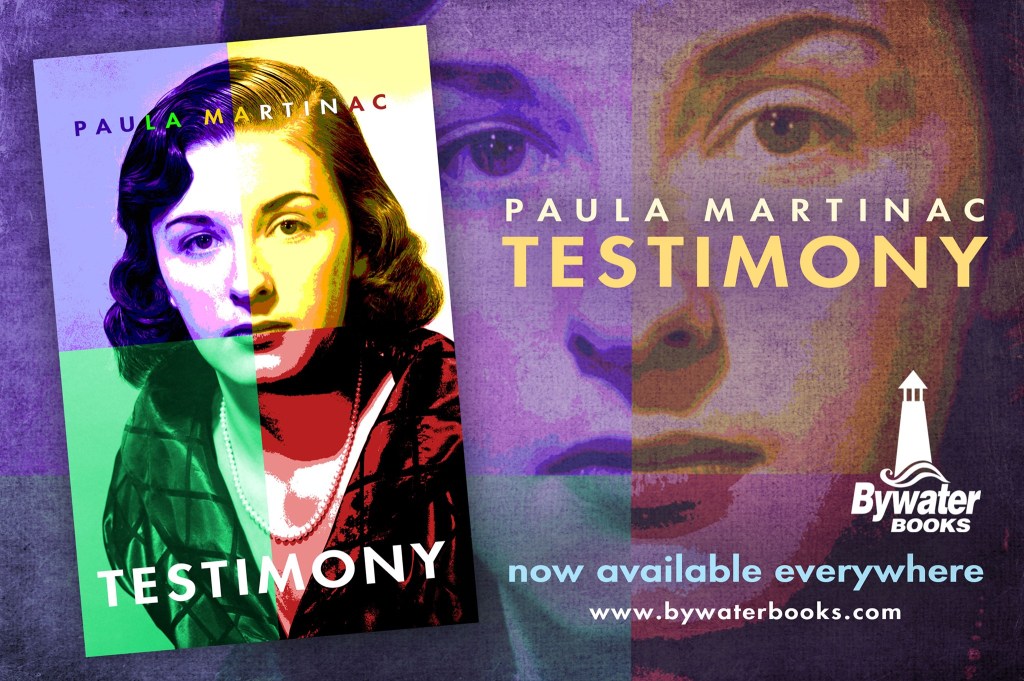
Author Carter Sickels (The Prettiest Star) says Testimony is “vividly imagined” and “shines a light on queer lives that have been forgotten by history.”
I hope you’ll check it out! Here’s a little teaser to intrigue you:
History professor Gen Rider secures tenure at Baines College, a school for white women. A woman in a man’s field, Gen teaches “Negro” history, which has made her suspect with a powerful male colleague. Even while she’s celebrating her triumph, she’s also reeling from the break-up of a long-distance relationship with another woman—a romance she has tightly guarded, even from her straight female mentor.
As the fall semester dawns, a male instructor at the college is arrested for having sex with a man in a park. Homosexual panic envelops the college town, launching a “Know Your Neighbor” reporting campaign. The police investigation directly threatens Gen’s friend Fenton, the gay theater director at Baines. But Gen finds herself vulnerable, too, when someone leaves mysterious “gifts” for her, including a suggestive pulp novel and a romantic card.
As Gen tentatively embarks on a new relationship, a neighbor reports she’s seen Gen kissing a woman, and hearings into her morality catch her in a McCarthy-like web. With her private life under the microscope, Gen faces an agonizing choice: Which does she value more, the career she’s scraped to build against the odds, or her right to a private life?
Posted in gay and lesbian | Tagged gay and lesbian, historical fiction, LGBTQ fiction | Leave a Comment »
My dad read history books for fun and I learned from his example, but I’m aware that some people might find that a weird passion. I think it has something to do with the way we learn history in school, which can make it seem dry and dull. History textbooks turn people from the past into cardboard figures, instead of living, breathing people just like us.
That’s where historical fiction comes in, and it’s one big reason why I write it. Bringing people from the past to life excites me.
Another reason I write historical fiction is because so much LGBTQ history has been erased or forced underground, and many queer people remain in the dark about our past. My wife teaches LGBTQ literature in college and finds few of her students even know what “Stonewall Rebellion” refers to.
LGBTQ historical fiction helps make our history more vivid, alive, and relevant. My new novel, Testimony, is set in 1960, a time in which queer college teachers and students faced harassment in a Lavender Scare-like spree. From 1955 to 1965, for example, legislators in Florida systematically purged queer faculty, students, and staff from that state’s schools. Testimony was inspired by the true story of an esteemed Phys. Ed. professor at UCLA named Martha Deane who was fired because her neighbor told university administrators that he saw her kiss another woman (more on Professor Deane next time).
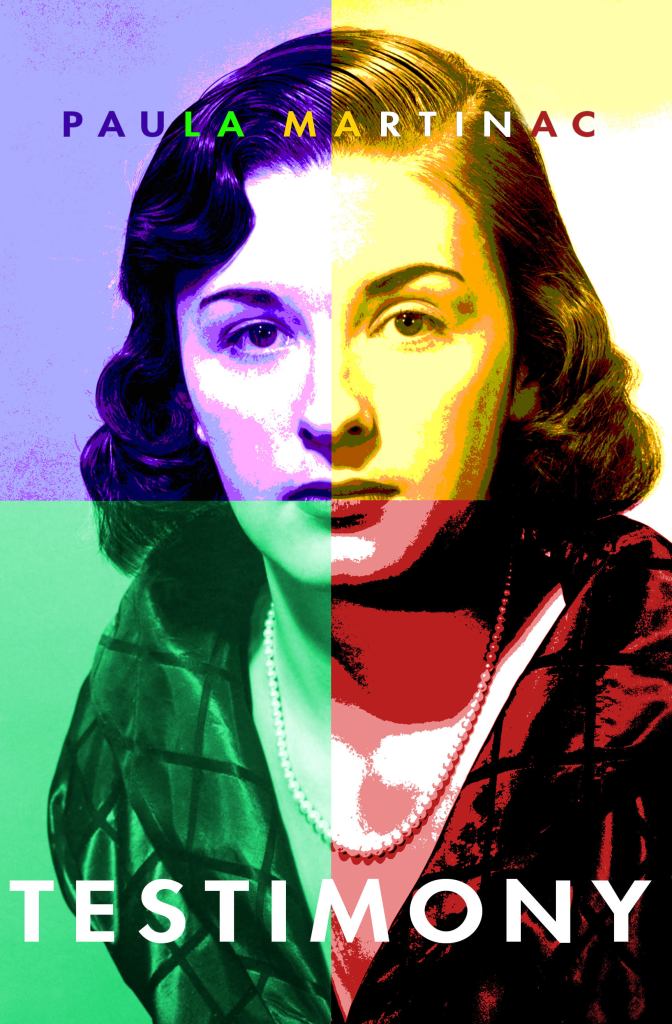
I wrote Testimony during a new wave of anti-LGBTQ sentiment. My aim was to show the chilling effects of antigay activism. Freedom depends so much on the political climate, and according to a new report from Lambda Legal Defense, “In just four years, President Trump has ushered in a judicial landscape that is significantly more hostile toward LGBTQ people.” Miraculously, though, one of the Right’s high-profile judicial assaults failed—in June 2020, the U.S. Supreme Court ruled in Bostock v. Clayton County that anti-LGBTQ discrimination in employment violates Title VII of the Civil Rights Act of 1964.
I’m looking forward to an LGBTQ-friendly administration and political environment. Here’s hoping we can make up some of the ground we lost since 2017, especially for trans people. Holding onto freedom involves knowing and embracing your history. So, because I care about the LGBTQ future, I’ll continue to write fiction that highlights our past.
Posted in gay and lesbian, lesbians, teachers | Tagged historical fiction, LGBTQ fiction, LGBTQ history | Leave a Comment »
All you book lovers out there … My publisher, Bywater Books, is having a super sale this weekend on every one of their titles, including two of my historical, LGBT-themed novels: Out of Time (Lambda Award winner) and the recently published The Ada Decades. You can pick up copies for 25% off the list price, including print and ebooks.
Check it out and take advantage to stock up on some terrific writers like (ahem) myself, Fay Jacobs, Ann McMan, Rachel Spangler, Bonnie Morris, Cheryl Head, Ellen Hart, Marianne K. Martin, Judith Katz, Elana Dykewomon, Georgia Beers, and many, many more.
Just visit the website and use the coupon code BANGBANG when checking out.

Posted in feminist, gay and lesbian, lesbians, novelists, publishers, writers | Leave a Comment »
I just got back from a five-day residential workshop* at Hollins University, called Tinker Mountain Writers Workshop. Although I didn’t realize until I got there, Annie Dillard attended Hollins and wrote her iconic Pilgrim at Tinker Creek when she lived in the area.
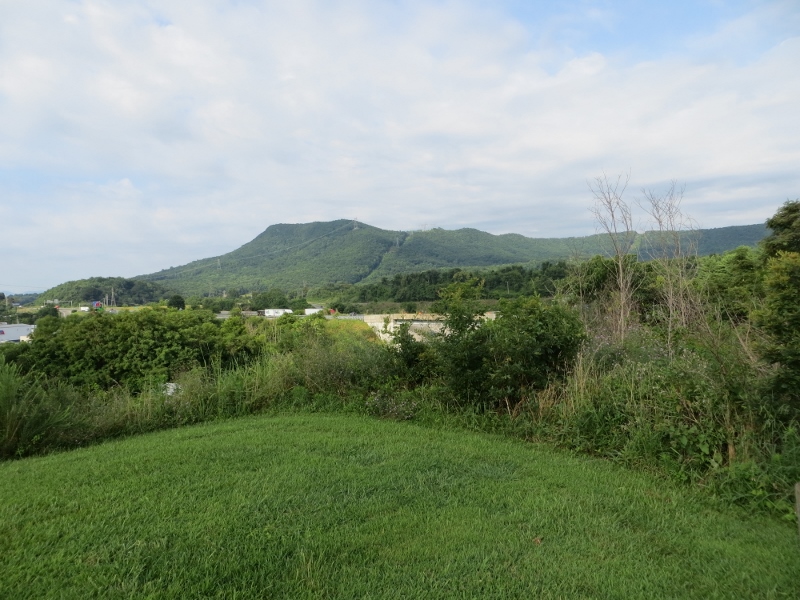
Tinker Mountain
It’s a beautiful place that I didn’t get to explore because I was inside most of the day talking fiction and craft! But the landscape of the area (the Blue Ridge Mountains) and of the school itself were both inspiring.
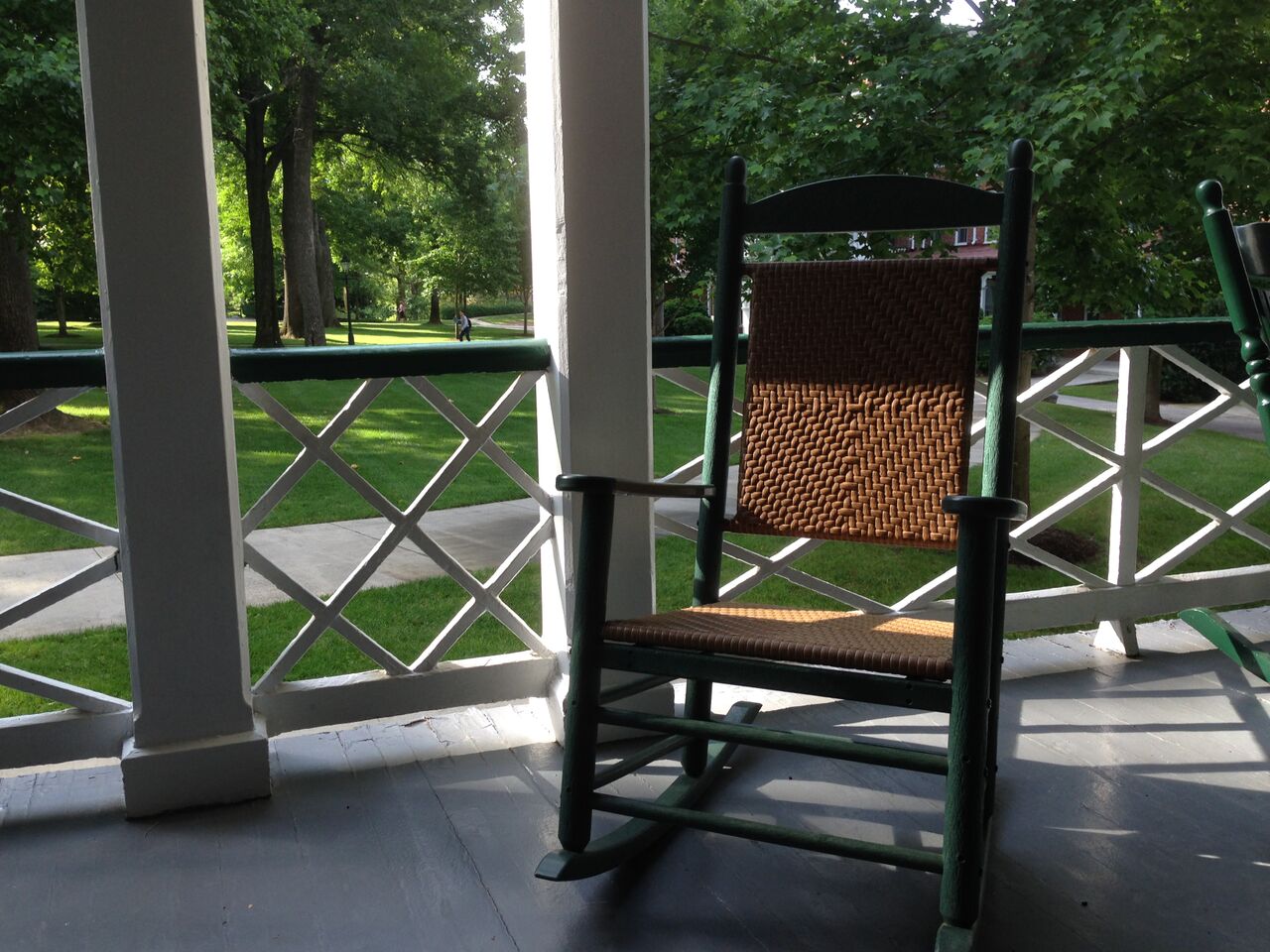
View from the porch of the main administration building, Hollins University
I was in a workshop of eight writers called “Advanced Novel” with author/professor Fred Leebron, and got excellent feedback on the first chapters of my historical novel-in-progress, Clio Rising. We did various exercises related to the future marketing of our novels, like writing the log line and back cover copy. To whet your reading appetite, here’s the log line I came up with for Clio:
In 1980s New York, a newly out gay woman embarks on a job as companion to a literary giant of the “Lost Generation,” a closeted lesbian who accomplished just one great book.
Now it’s on to revision!
*My attendance at TMWW was made possible by a Regional Artist Project Grant from the Arts and Science Council – Charlotte/Mecklenburg and the North Carolina Arts Council.
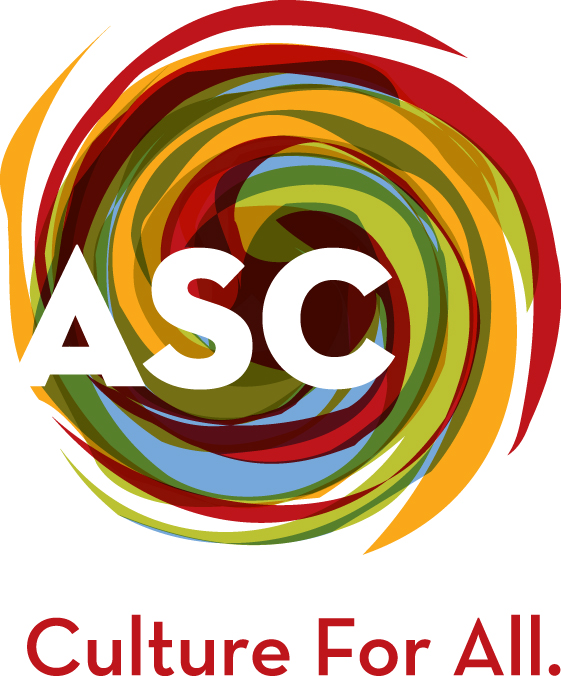

Posted in Blue Ridge Mountains, gay and lesbian, novelists, Paris lesbians, Virginia | Leave a Comment »
Independent bookstores need LGBT support! They don’t just sell books, but often act as local community centers as well. I had the pleasure of reading at two recently – Malaprop’s in Asheville, NC, and Bluestockings in New York City. Remember, these stores often carry titles by small presses (like LGBT and feminist publishers) that the big box stores don’t stock. You can find an indie near you by checking IndieBound. Even if you aren’t located near an indie store, you can order books through their websites and support their important work. Happy shopping!

Reading at Bluestockings Bookstore on June 4, 2017
Posted in bookstores, feminist, gay and lesbian, lesbians, New York, novelists, publishers, writers | Leave a Comment »
What’s that in the front window at Malaprop’s Bookstore in Asheville, N.C. – one of the greatest indie bookstores in the country? Could it be the cover of The Ada Decades, my new historical LGBT-themed novel? I’m reading there tomorrow evening at 7pm, if you’re in the area … or are in the mood for a trip to Asheville. (And really, who isn’t?)
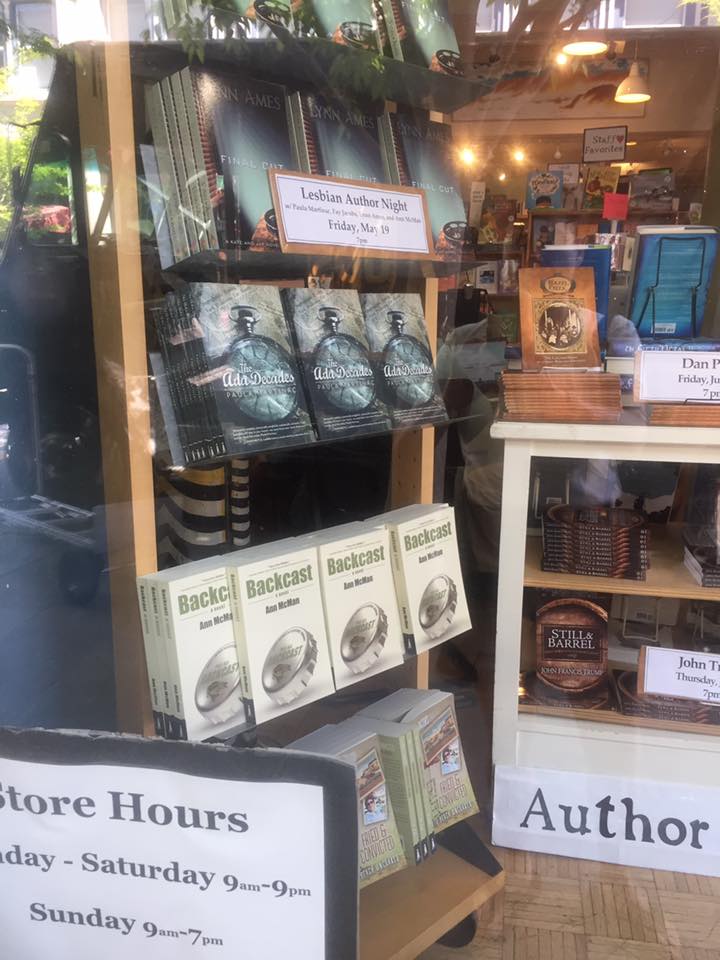
Posted in bookstores, civil rights, gay and lesbian, North Carolina, novelists | Leave a Comment »
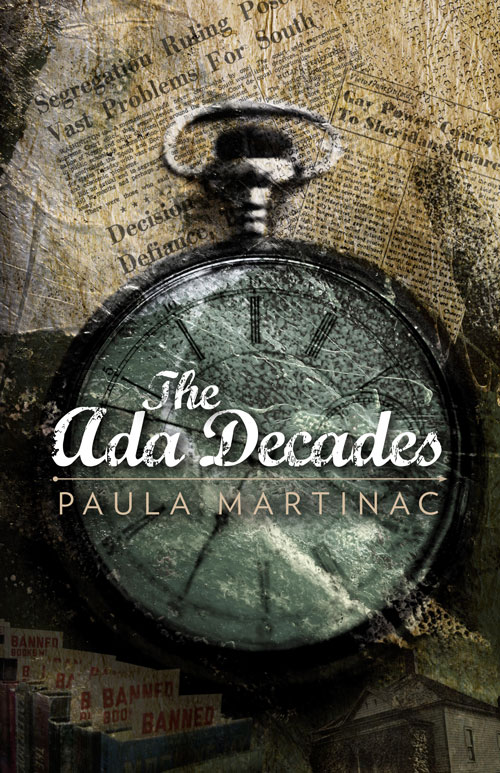
You must be logged in to post a comment.